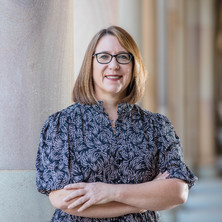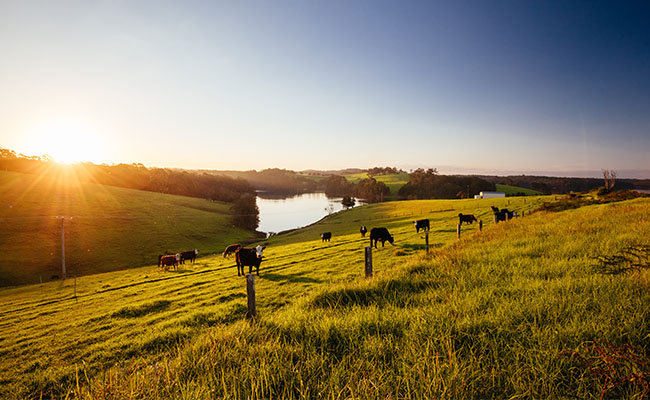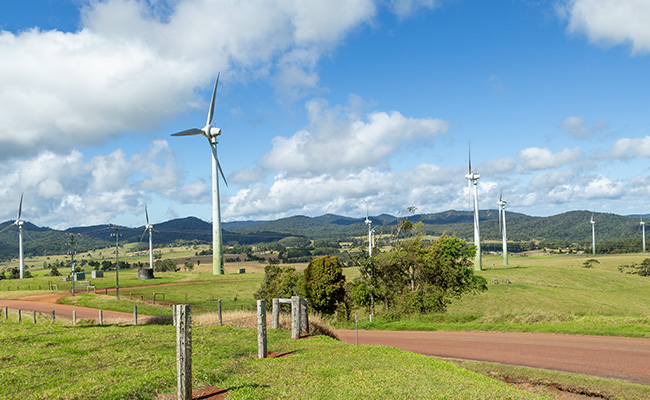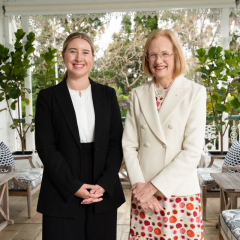From coal mines to coastlines: how legal experts are rewriting the playbook for a climate-resilient future
The law is being tested – and slowly reshaped – under the weight of a rapidly changing climate.
Around the world, legal systems are being pushed to confront the realities of environmental collapse, as a new wave of climate-conscious thinking challenges courts to reimagine centuries-old doctrines.
This transformation reached a turning point when the International Court of Justice made a landmark declaration in July that governments are legally obliged to protect their people from the harms of climate change or face legal consequences.
It was a ruling that signalled a profound shift: climate justice is no longer a moral plea, but a legal imperative.
Australia, too, has seen flashes of this evolution. In 2022, the Queensland Land Court rejected a proposed coal mine, citing climate change and human rights in a decision that marked a pivotal moment in the nation’s legal response to the crisis.
The case, Waratah Coal v Youth Verdict, showed that the law can rise to meet the moment. But it also underscored how rare such victories are in a system still struggling to keep pace with an unfolding climate emergency.
Legal experts, policymakers and those on the frontline face a dilemma: laws that struggle to adapt at speed to the dynamic needs of the environment.
“Laws are static, and they simply haven’t evolved to cope with these challenges of climate and environmental change,” says Professor Justine Bell-James, a researcher at The University of Queensland (UQ) Law School and the Director of the UQ Climate Change Network.
Blue carbon and the barriers to restoration
Professor Bell-James’s research was instrumental in informing Australia’s first ‘blue carbon’ methodology, which provides guidelines for quantifying and crediting carbon sequestration and emissions avoidance in coastal ecosystems.

Her research has helped pave the way for coastal restoration activities, such as mangrove rehabilitation, to receive Australian Carbon Credit Units.
While an encouraging first step, the slow pace of environmental law reform has further sharpened her research focus as she seeks to dismantle the remaining legal barriers to coastal and marine restoration.
“A lot of my work focuses on this idea that we’ve got an environmental law regime that’s premised on the basis of preserving the status quo and that any interference with the status quo is bad,” Professor Bell-James elaborates.
“Whereas restoration, something that aims to do good things for the environment, still has to go through this regime that’s inherently not fit for purpose.”
Farming the future: rethinking agricultural tax law
From Australia’s coastal fringe to its verdant farming regions, UQ Law School Associate Professor and Director of Business Law Dr Thea Voogt faces a similar stasis when it comes to modernising agricultural tax policy to fortify farmers against the effects of climate change.

Dr Voogt explains that farmers face a growing tension between the need to diversify and future-proof their operations with a stringent legal definition of farming that could penalise them for taking adaptive action.
“Agricultural tax laws haven’t changed; they are still stuck in this place where unless you plant something or unless you have livestock, you’re not a ‘genuine farmer’ and can lose out on tax concessions because of the way that we so narrowly define farming from an income tax perspective,” she explains.
“One of the deeper policy conversations we need to have is whether a genuine farmer can also be someone who diversifies through carbon offsets or invests in emissions-reducing technology.”

Unlocking climate technology: the IP law challenge
Legal innovation in the climate space is also a focus for UQ Law School senior lecturer Dr Wenting Cheng.

Her research into sustainable finance and equitable climate transition suggests technology and finance can drive action, provided global players can navigate a significant legal hurdle: intellectual property (IP) laws.
Dr Cheng says that fewer restrictions and more flexibility could make climate change technology more widely available, particularly to developing countries.
“Climate technologies like solar and wind power are concentrated in a few nations and some of them are pushing for even stronger IP protections,” she explains. “But with more flexible rules, they could be shared more widely to help slow climate change.”
To strike a better balance between IP rights and the public interest, Dr Cheng suggests using existing flexibilities under the TRIPS Agreement – an international legal framework administered by the World Trade Organisation .
“Prolonged treaty negotiations aren’t working,” she says. “Instead, countries should maximise the tools already available to them, including the flexibilities available in the TRIPS Agreement.”

Risk, reform and the reluctance to change
Professor Bell-James says environmental law reform is similarly vexed.
“Generally, governments don’t have much appetite for radical law reform, and I think it all comes down to risk perception,” she says.
Her current research focus – De-risking nature repair activities in Australian coastal and marine ecosystems – seeks to overcome this barrier to positive change.
“We’re doing empirical research and talking to regulators to figure out what it is that they’re worried about with restoration. They seem reluctant to make it easier because there’s something in restoration that they see as inherently risky,” Professor Bell-James says.
“It’s important to demonstrate the benefits of doing this sort of work – among the community as well as regulators – because you need that social licence to be able to get traction for law reform.”
The path forward: legal flexibility for a resilient future
In the complex field of taxation law, Dr Voogt is also exploring innovative solutions to help the agriculture sector take sustainable climate change action.
The clearest path forward may stem from a decades-old idea.
“This year marks 50 years since the Asprey Review was released, Australia’s most comprehensive review into its tax system. Even then, it said we needed to change the definition of primary production and presented a great framework for what that should look like,” Dr Voogt says.
“The argument is there, the solution is there, all we need is the political will to change it.”
UQ Law School marine environment and bioeconomy experts will continue to push the envelope to innovate and challenge the legal change that is needed to help protect the Earth’s unique biodiversity and environment.
Professor Bell-James, Dr Voogt and Dr Cheng contribute to the UQ Law School’s The Bioeconomy, and Shipping and Marine Environment research themes.
Partner with our legal academics to continue progressing environmental law reform
Latest
-
-
UQ Master of Laws – a postgraduate program custom-built to you
24 September 2024



